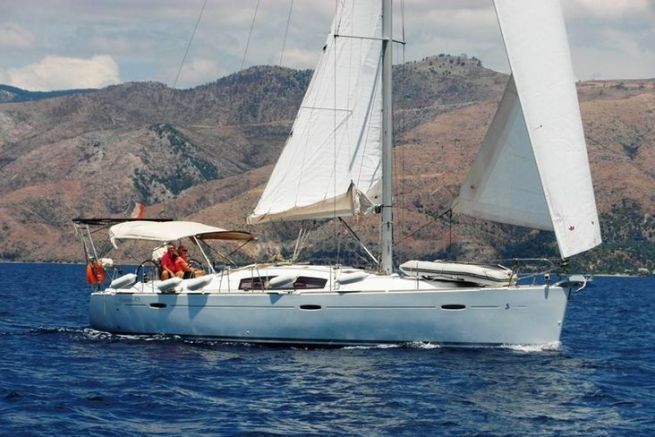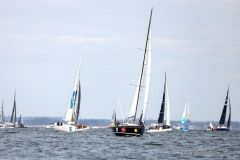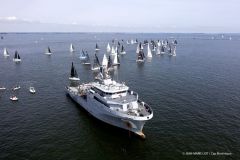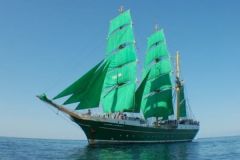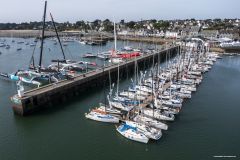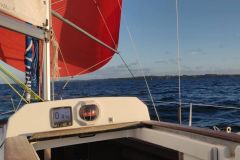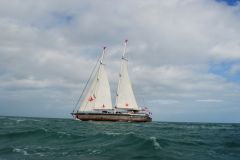A quiet crossing on the program
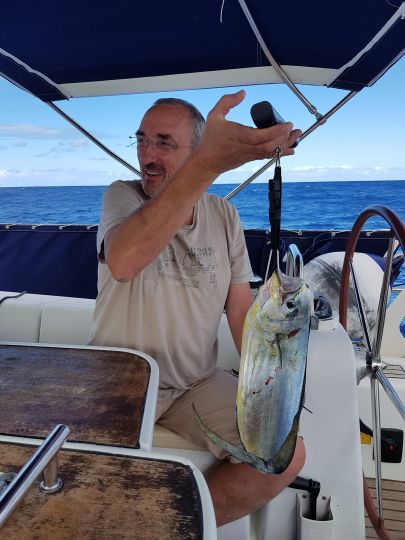
This story begins with a photo. That of a beautiful dorado Coryphene. And Michel tells us the story. " I'm not a great fisherman, but a 2.5 kilo dorado suits me very well. Even though I'm sure it was a suicidal dorado to come and bite my hook! "> It was on board Babaorum, an Océanis 43, on its way to Marie-Galante from Las Palma that Michel made this beautiful catch. He had left a few days earlier to cross the Atlantic with two friends. André, this long-time friend had bought a boat from Michel 30 years earlier (an RC 20) and Régis had never done much sailing, but was keen to live an adventure.
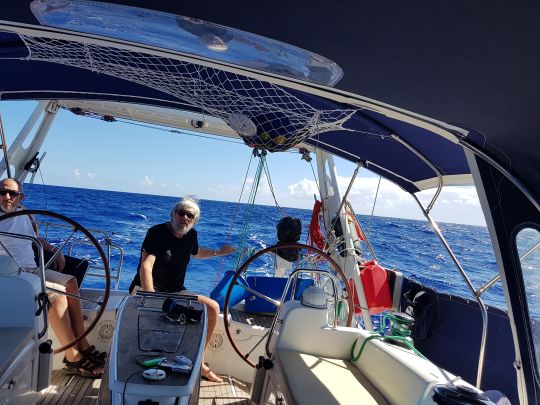
Seasickness and broken ribs
Michel tells us: "font-weight: 400;"> Michel knows that seasickness often disappears on its own after the body has docked. So he makes sure his passengers are comfortable, while trying to keep control of the boat. " That year, the trade winds were very southerly. I have to go way down towards the equator. It's only at the very end of the voyage that I'll finally find them. After 2 or 3 days of sailing, I realise that the atmosphere aboard is rather like a holiday camp. I steer and manage the boat, my two other passengers manage their seasickness as best they can. Régis, the one who is visibly the most affected, keeps moving down the companionway, his head cool and his body warm. "But Régis remains deaf to this common sense advice.
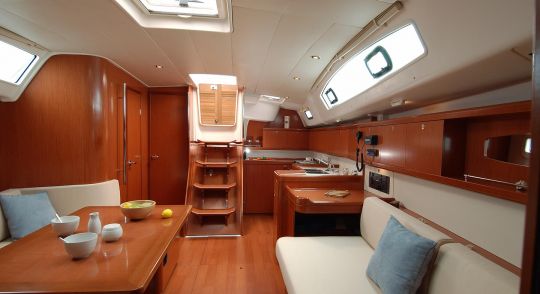
It took a wave, a gust of wind for the accident to happen. Régis, not very well anchored, fell from the companionway and violently hit the saloon table. Violent chest pain. Michel takes down the iridium that he had taken at the request of André who wanted to check his emails on board: " I've asked Régis several times not to stay in the descent. He risks falling and moreover he blocks the way to the chart table. " I'm calling my brother-in-law who's a general practitioner. I explain to him the situation, my passenger's symptoms... Remote diagnosis, one or even two broken ribs. No major medical risk, paracetamol will do the trick. "font-weight: 400;" In a deckchair, the winds always carry you westward. The time it would take to get back to the starting point would be just as long and much more uncomfortable than continuing towards the finish. "Michel takes down the iridium that he had taken at the request of André who wanted to check his emails on board: " This search for the trade winds creates sea conditions not necessarily suitable for the transport of a suffering passenger. I have to spend all my time avoiding shocks, reducing sail area and speed so as not to hear my crew member complaining about his pain ."
Necessary adaptation of the injured person's rhythm
the boat behaving strangely. I'll go see what's going on. I find my friend totally prostrate, frozen and unable to do anything. I have to finish his watch at his side ."> " Scissor sails, I know I'm ruining them a bit, but it's better not to make Régis suffer too much. "The wounded man will therefore have to be patient.
crew member. In reality, we were only two crew members and a passenger, not three sailors. The third buddy, Régis, wanted to live an adventure, and I could offer it to him. And, basically, I prefer sailing with people with little experience rather than with people who are always going to show off their knowledge. "> " Confirmation of two cracked ribs. I had a good feeling that the adventure had gone on too long for him. He disembarked as soon as possible, not even taking advantage of the last evening on board. Pain, stress, fatigue... All these factors must be known before embarking, as they will inevitably appear at some point in the navigation. And they will be amplified by the slightest anxiety-provoking event. Like broken ribs, for example. There's no training for crew or passengers, strictly speaking, you discover people at sea. " After a few days, Régis thinks he'll be a little more able to participate in the ship's duties. He applies to take a watch: " I've been sailing since I was a child and since I was a child I know that no two crossings will ever be the same. No matter how well prepared we are, anything can happen. Basically, I'm not a fan of Iridium-style on-board equipment, but I have to thank André for insisting on taking one, he was very useful for this tele-consultation with my brother-in-law. Knowing how to question ourselves and question our expectations and principles can help! "
Brest, safely and in great shape!
